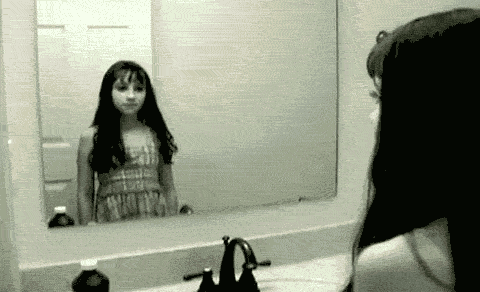
Edgar Allan Poe is one of the greatest and most influential writers of our time. He wrote many literary masterpieces including The Raven, The Pit and the Pendulum, and The Oval Mirror. However, today the focus is one the birth of horror itself, The Fall of the House of Usher. Using this short story, I will find inspiration for my horror story which will be published in 2014.
The first haunted idea that I like from this story is the isolated, gloomy house. a quote, "but, with the first glimpse of the building, a sense of insufferable gloom pervaded my spirit." symbolizes the feelings attributed to this house by itself. What I like about this is the feeling of no help is coming, and that anything that happens is up to you to solve. There would be no horror if at the first sign of something mysterious the person called the police. That would be no fun.
A second idea that I believe I will copy is the long introductory setting description.I really liked Poe's setting description, which, by the way, lasted almost two full pages, because the reader suddenly feels alone and scared. Simply by stating things in a novel, such as, "a singularly dreary tract of country" or "upon the bleak walls—upon the vacant eye-like windows—upon a few rank sedges—and upon a few white trunks of
decayed trees." lends to a tremendously heightened sense of suspense.
The third spooky theme that I found noteworthy was the sickness of the human being and his connection to something abiotic. The main characters friend is very sick which is actually the reason that the author was told to come-in order to help his sickly friend. However, a more sinister connection
lies in wait. The condition of the man is linked to the condition of the house. This is something that the reader will know is impossible in real life, but is also to apparent to ignore.
Fourth, I absolutely adored the use of the woman "coming back from the dead". In the story, the woman is buried and believed to be dead. However, she comes back later as displayed in this quote. “ 'Madman! I tell you that she now stands without the door!' ” Coming back from the dead is a concept that the reader will find extremely spooky because it is a very unnatural thing that opens the door for even more unusual horrors like zombies or skeletons.
Last but certainly not least, the final impressive scare tactic that Edgar Allan Poe used was the use of a time period that was in the past. Now I know that in Poe's time period, 1850s, things could have been considered being in the past for us present day. So Poe unwittingly did not put in technological advances and modern practices in science. It doesn't matter. Having a setting in a time period without cell phones, without obvious cures for diseases, without artificial lighting, all of these things create a place of mystery and deceive. The story is given credibility by the reader because, really, who knows what happened in the 1700s? There probably were ghosts. The setting lends credibility to the validity of the unnatural.
Photo Credit to: http://www.pbh2.com/wtf/scariest-gifs/attachment/scariest-gifs-mirror/\
http://grandcentralbakery.com/scary-chicken-ours/


